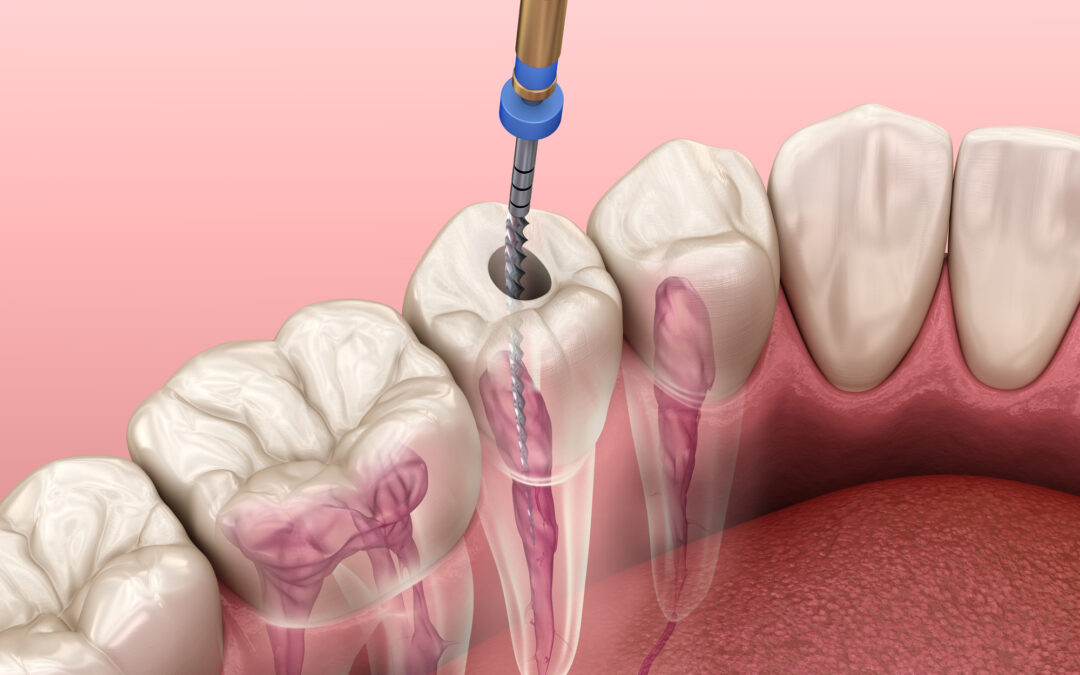Root canal therapy, often known as a root canal treatment, is one of the most effective dental procedures for saving a tooth that is severely decayed or infected. Despite its reputation for being a painful procedure, root canal treatment has become a routine and essential part of modern dentistry, offering patients the chance to retain their natural teeth rather than resorting to extractions. In this article, we’ll explore why root canal therapy is crucial for saving your tooth and what happens if this necessary treatment is ignored, including the legal ramifications of medical negligence and malpractice in the dental field.
The Role of Root Canal Therapy in Saving Your Tooth
The primary purpose of root canal treatment is to address infection or damage to the pulp of a tooth. The pulp is the soft tissue inside the tooth that contains nerves, blood vessels, and connective tissue. When the pulp becomes infected or inflamed—due to deep decay, repeated dental procedures on the tooth, or cracks or chips in the tooth—it can lead to severe pain, abscesses, and even tooth loss. Root canal therapy is designed to remove the infected pulp, clean the inside of the tooth, and seal it to prevent further infection.
Without root canal treatment, the infection can spread, potentially leading to more serious health issues, including an abscess or the loss of the tooth. This makes root canal therapy essential, as it not only prevents the infection from spreading but also allows you to keep your tooth intact. Saving your natural tooth through this procedure preserves its function and prevents the need for expensive and complicated replacements, such as implants or bridges.
What Happens During Root Canal Treatment?
Root canal treatment is typically performed in one or two visits to a dentist or endodontist. The procedure involves several steps:
1. Diagnosis and X-ray: The dentist will begin by examining the affected tooth and may take X-rays to assess the extent of the infection and determine if the tooth is a good candidate for root canal therapy.
2. Local Anesthesia: To ensure you’re comfortable throughout the procedure, the dentist will administer a local anesthetic to numb the area around the infected tooth.
3. Pulp Removal: The dentist will make a small opening in the crown of the tooth to access the pulp chamber. Using specialized tools, they will remove the infected or damaged pulp.
4. Cleaning and Shaping: After the pulp is removed, the dentist will clean and shape the inside of the root canals to ensure no bacteria or debris remain.
5. Sealing: The canals are then filled with a rubber-like material called gutta-percha to seal the area and prevent further infection.
6. Restoration: In many cases, a crown is placed on the tooth to restore its strength and appearance. The tooth is now free from infection and can continue to function like a natural tooth.
While root canal treatment is not without its challenges, it is a highly effective way to restore function to a damaged tooth and eliminate pain.
Consequences of Avoiding Root Canal Treatment
Ignoring the need for root canal therapy can have serious consequences. If left untreated, an infected tooth can develop an abscess, leading to swelling, severe pain, and even the spread of infection to other parts of the body. In some cases, untreated infections can lead to tooth loss, necessitating the use of dentures, bridges, or implants to replace the tooth.
The consequences of neglecting necessary root canal treatment can also extend beyond just dental health. An untreated infection can lead to chronic pain, which can affect your overall well-being, including difficulty eating, sleeping, and even talking. Moreover, the emotional toll of persistent dental pain can impact your quality of life.
Medical Negligence and Malpractice in Root Canal Treatment
Like any medical or dental procedure, root canal therapy carries risks, but these risks are typically minimal when the treatment is performed by a skilled and experienced dental professional. However, when a dentist fails to diagnose the need for root canal treatment or performs the procedure improperly, it can lead to medical negligence or malpractice. This could result in unnecessary complications, including prolonged infection, improper healing, or permanent damage to the tooth or surrounding tissues.
Medical negligence in the context of root canal therapy can occur in various ways, such as:
– Failure to Diagnose: If a dentist fails to recognize the signs of infection or pulp damage, they might not recommend root canal therapy when it’s needed. This can lead to the spread of infection and irreversible damage to the tooth.
– Improper Procedure: Performing the procedure incorrectly, such as not fully cleaning the infected pulp or sealing the canals inadequately, can result in the tooth remaining infected or re-infected.
– Failure to Monitor Recovery: After a root canal, it is essential for a dentist to monitor the healing process. Failing to do so could result in complications, such as reinfection, that could have been avoided with proper follow-up care.
If medical negligence or malpractice occurs during root canal treatment, it can not only lead to unnecessary pain and suffering but also legal consequences. Patients who suffer from improper root canal treatment may have grounds to file a malpractice claim against the dentist or dental clinic involved, seeking compensation for any additional medical expenses, pain, and distress.
Root canal therapy is an essential treatment for saving a tooth that has become infected or damaged. By removing the infected pulp, cleaning and sealing the tooth, and restoring it with a crown, dentists can prevent the spread of infection and allow patients to retain their natural teeth. Ignoring the need for this procedure can lead to severe health consequences, including tooth loss and the spread of infection to other areas of the body. Furthermore, medical negligence or malpractice during root canal therapy can result in unnecessary complications, making it crucial for patients to seek treatment from qualified professionals and ensure proper care is provided.
Ultimately, root canal therapy not only preserves your natural tooth but also contributes to your overall health and well-being. If you’re experiencing dental pain or suspect an infection, consult a dental professional promptly to determine if root canal treatment is the right solution for you.








